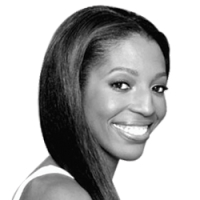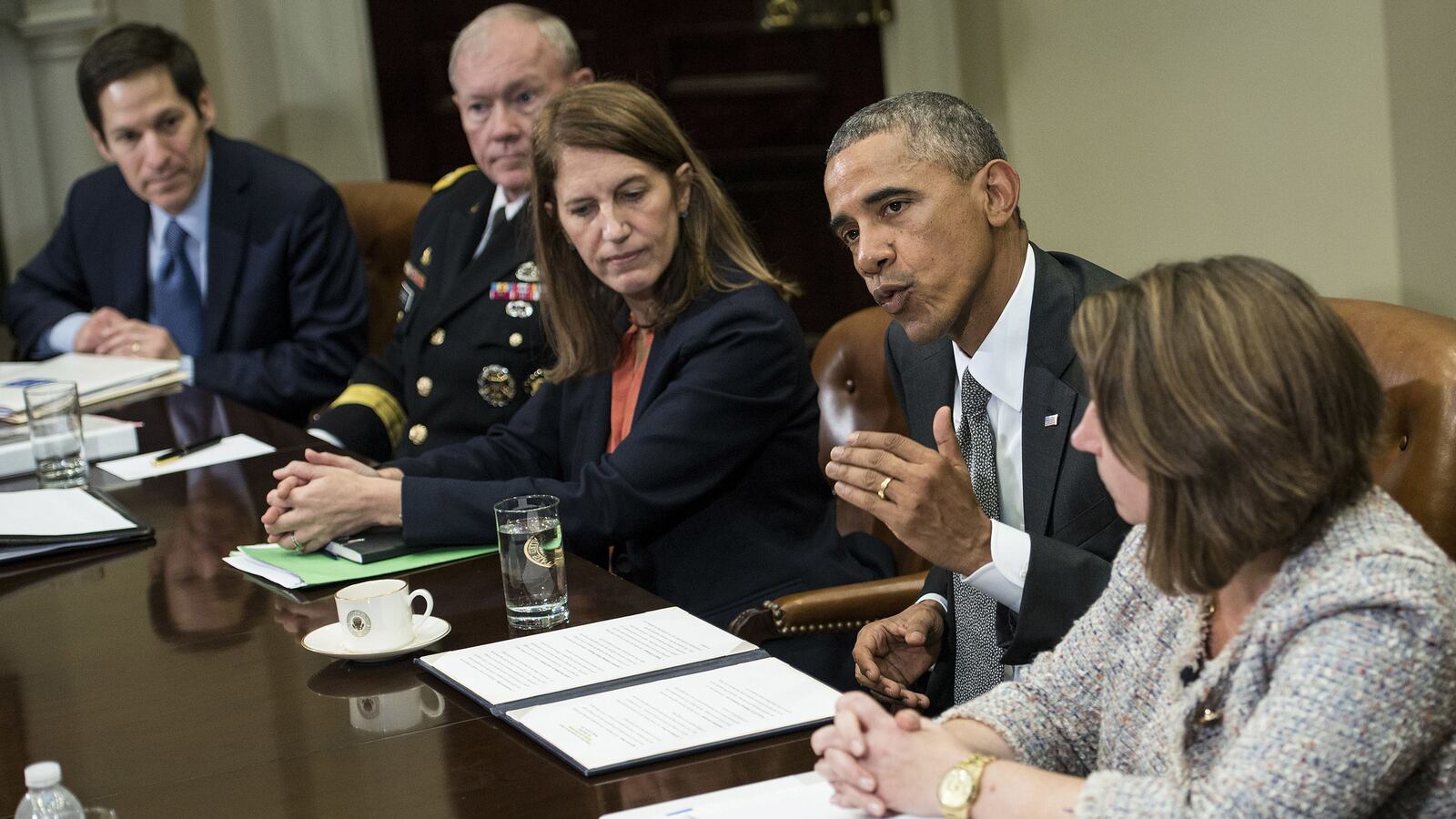Recently high-ranking women in the Obama administration shared a powerful tip for how women can get ahead in a male-dominated work atmosphere: help other women. According to The Washington Post, to avoid one of the primary pitfalls women face in the workplace of not getting their voices heard, the women employed “amplification,” where they would repeat an idea of a female colleague and give her credit for the idea by name. The impact was that not only was one woman able to breakthrough and be seen as an invaluable part of the team, but many women were.
I had this article flagged for me by multiple friends, which I take as testament to the fact that many believe the strategy and success of the women in the Obama White House can be replicated by women outside of the White House and even outside the world of politics. For me, however, the hoopla around the revelation of amplification was validating, encouraging and frustrating all at the same time. Validating because I have always believed that when it comes to achieving gender equality, women have much more power to effect change than society leads us to believe. Encouraging because I am glad to see us harnessing more of our power.
But frustrating because while this article may inspire a lot of celebration of #girlpower on social media, it should also serve as a cautionary reminder that when it comes to the quest for gender equality in any professional setting, women who don’t actively help one another are just as harmful as un-evolved men.
For the record, I have wonderful female friends, and my career would not be possible without extraordinary female mentors who have shown me incredible generosity. But—and this is a big but—that doesn’t change the fact that throughout my career, the least supportive and most blatantly hostile professional peers I have encountered have never been men, but women who assumed they were in direct competition with me or other women for specific opportunities.
There have been several instances of undermining, such as the time I was informed by a television producer that another female personality had actively tried to discourage a network from booking me. According to the producer, her explanation to them was simply that I was “less experienced.” But really the other personality and I were apparently being considered for the same slots so she wanted me out of the running—surmising, I guess, that a fellow male guest wouldn’t be as problematic for her own career aspirations as another woman.
There were moments that were just downright petty, such as the Oprah diss. No, Oprah has never done anything to me (except inspire me from afar!). But when a more senior female journalist discovered I have a personal assistant, she declared that such help was unnecessary, because “after all it’s not like you’re Oprah anything.” (Um…I know I’m not Oprah. There’s only one Oprah!) She then followed up by telling me (and our boss) that I appeared on TV too much as a commentator, which was strange since that tends to be part of my job, particularly during election cycles. For at least the next year whenever I would have something to celebrate professionally, friends and family would say, “Congratulations! And just think: you’re not even Oprah!” Ha!
With so many stories of sexual harassment and assault, a few instances of career related cattiness seem like small potatoes. But as the Obama staffers prove, women helping or hurting professional peers can make all of the difference in the world. For instance, the numbers of female elected officials remain disappointingly low. Any woman who wants to see them be higher should take a good look in the mirror.
While misogyny remains an unacceptable reality, I believe the way women judge other women still remains worse. Whether the name is Sarah Palin or Hillary Clinton, for every woman who disagrees with her policies, I will show you three who disapprove of her marital choices (“I would never stay with Bill. She’s clearly in it for the power.”) Or her parenting choices. (“I would never go right back to work after giving birth. Clearly Palin’s power hungry.”) Or her looks. (“If she wasn’t pretty she wouldn’t have a career.”) Her wardrobe. (“Geez. Pantsuits. Really?”) Her hair. (“Geez. Headbands. Really?”)
And when women are competing for the exact same job, things can get even more cutthroat. A perfect illustration comes to us from the world of modeling. Tyra Banks disclosed that she suspected Naomi Campbell intentionally cost her jobs in the fashion industry, leading to one of the most enduring rivalries in one of the world’s cattiest professions. But here’s the kicker. Historically fashion has been one of the least diverse professions. Meaning that if one black model was given a job, it usually meant another one was unlikely to be hired, because for plenty of designers and magazines one black model was more than enough. So the system was set up to pit two equally beautiful, capable women against each other, instead of encouraging them to work together. So in the end, who’s really to blame?
But I’m not letting men off of the hook for their own discrimination, or for influencing the way some women treat other women in the workplace. A landmark study published in Harvard Business Review found that women and minority executives are penalized by their primarily white male superiors for promoting diversity. In other words, while the concept of women “catfighting” is viewed as a societal joke, particularly among men, (hence the catfight “Seinfeld” episode,) the impetus behind such competitiveness is no laughing matter.
So you see, I believe there’s enough blame to go around. Yes we need to challenge the patriarchy, but we, as women, also need to tell the truth—not only about what men and policymakers can do to help us achieve equality, but also about what we can do, starting with helping each other. To that end I’m sure some well-meaning social justice warrior will tweet or blog about how she’s only experienced love and light from every woman she’s ever met and therefore can’t believe I wrote this piece. If that’s the case then I salute you but I would also say that your experience—like that of Lil’ Wayne’s—is a privileged one.
Hopefully this history-making election year will serve as a powerful reminder that while we can disagree, all women gain something when we work together and respect one another. After all, the election of Hillary Clinton may just inspire the young daughter of a Republican to run for office one day. But part of the responsibility of that young girl’s parents—especially her mother—is to send the message now during her formative years that while they may disagree with and criticize Clinton’s policies, they should never criticize her for anything they wouldn’t criticize a man for.
But most of all I hope every woman will teach a little girl in her life that being nice to the other girls on the playground and in the cafeteria (or eventually in the workplace) is not only the right thing to do, but could be the key to electing the next female President, Senator, or Congresswoman. It could also be the key to that little girl growing up and making it to the White House herself someday.






